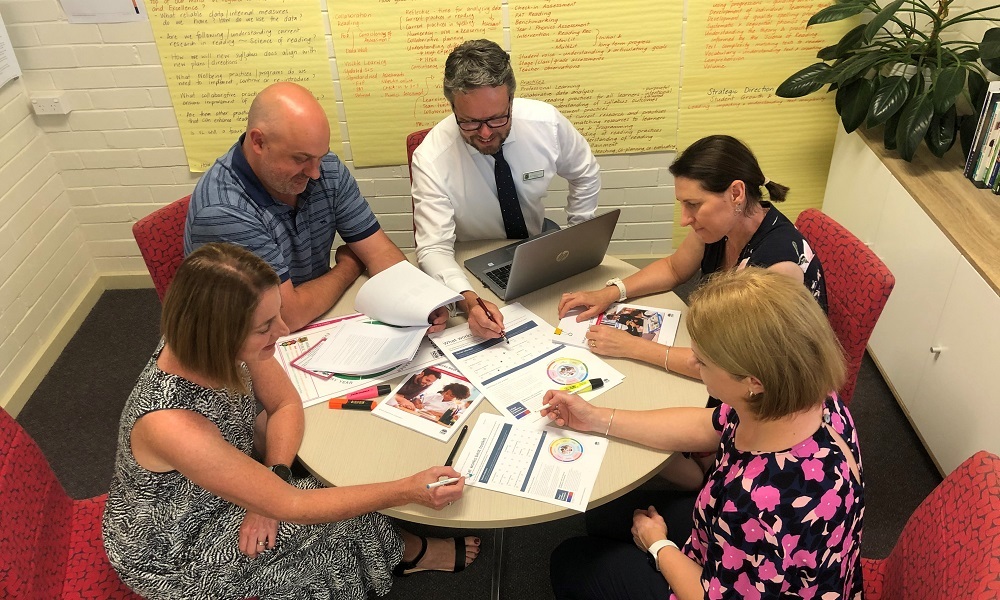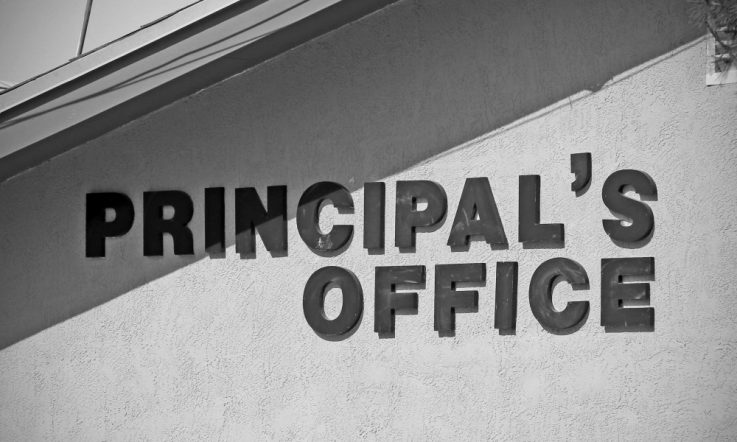‘Being reflective by collaborating with colleagues, committing to improvement, building on current skills and knowledge and sharing with others is vital for all educators,’ leaders at Mimosa Public School (MPS) in New South Wales share with Teacher.
Reflection in itself is a broad term, and can mean many different things when it comes to the skills involved for educators and school leaders. Leadership teams at Sydney’s MPS and Doonside Public School (DPS) have both built a culture that values reflection of practice, and say reflection is imperative for improving student learning and staff efficacy.
‘It is a vital part of the school improvement process and cannot be missed. We need to be able to be clear in where we are at as a school, what are our priorities, what can we do now and what can we plan to do in the future,’ MPS Principal Matthew Fuller and Assistant Principal Fiona Smith say.
‘When something hasn’t worked, whether it’s individual, as a team or at a whole school level, why didn’t it work, what would you do differently? That’s where our reflection comes in,’ DPS Principal David Galea tells Teacher.
The primary schools have both utilised the ‘What works best’ toolkit developed by the New South Wales Centre for Education Statistics and Evaluation (CESE). Sally Egan, who is currently Relieving Executive Director for School Improvement at the NSW Department of Education, was Relieving Executive Director at CESE when the toolkit was published earlier this year.
‘It’s really provided us with an opportunity to take the research and the evidence base and provide our teachers with the best opportunity to reflect on their practice and reflect with rigour and really think about well – how am I going to plan my next steps for my teaching?’ Egan tells Teacher.
Building a culture that values reflection
With schools being incredibly busy and dynamic places, Fuller and Smith say giving prominence and importance to the reflective process is vital. ‘There needs to be a commitment from the leadership team and a supportive culture to embed a reflective culture.
‘We need to have a narrow focus that goes deep, rather than a surface look at what is needed. We can’t work on everything deeply at once so it’s important to look at what’s most important, where is the urgency and what are we well informed and confident to tackle.’
An example of this is MPS’s five year focus on improving the teaching of reading across the whole school. Fuller and Smith say focusing on one narrow area for an extended period of time, like they have done with reading, helps ensure these improvements are embedded within the school.
In the decade they have been at DPS, Galea and Deputy Principal Colleen Nisbet have worked towards having reflection at their school progress from being an individual task to an embedded whole school process. It’s now a sustainable practice in the school, Galea shares.
Galea says leading by example has helped build this culture. For instance, every step of the toolkit he wanted his executive team to complete with staff, he completed with the executive team himself first. He says this approach also helped to prevent the task from being viewed as daunting.
‘David is a very reflective person and that sort of comes down to the rest of the [executive] team … everything we lead is going to be evaluated,’ Nisbet shares. ‘Having those practices ourselves and modelling it and modelling the importance of it has been really important for staff.’
Effective questions for deep reflection
MPS leaders say when they are working on reflection with staff, importance needs to be given to allowing time for collegial conversations to take place. They add that asking the right questions encourages deep reflection and analysis. Effective questions they use include:
- Where are we at now?
- What are our priorities and why?
- Where do we want to be?
- How are we going to get there?
As well as this, Fuller and Smith say it is important to have a shared understanding of the school’s vision and a commitment to wanting to improve and build on what is currently happening. ‘It is also important to build trust as professionals and have honest, open conversations in a supportive culture where everyone is treated respectfully. A safe environment needs to exist for the reflective culture to be truly effective.’
Galea and Nisbet from DPS say skills that have proven essential to effective reflection include listening, communication, patience and trust. Another important element is making sure that when staff are looking ahead as part of their reflection process, they are implementing actionable steps which are mapped to clear expectations.
‘Don’t make that goal post too far, even though you might have that final goal that you want to get to. Sometimes in certain parts of reflections, teachers who we have working in teams, it’s taken several years for that reflection,’ Galea shares. ‘It’s very easy to reflect on someone else’s work, but when it comes to your own, especially if you haven’t succeeded in something, sometimes it can be daunting.’ To this end, he adds that being judgement free, as a school leader, is crucial too.
Improving reflection skills in your own school context
For school communities looking to enhance and improve their reflection process, first and foremost, school leaders should aim to be intentional and purposeful when setting up the conditions for reflection to occur, Fuller says. Setting up a trusting and supporting environment is essential.
‘It’s really important that as a team you work together on developing that understanding that “we’re all in this together … we don’t have to know everything”,’ Fuller shares. ‘That trust is there for people to be able to say “no, I don’t really know what I’m doing” or “I don’t know what I’m going to do with this little problem” and so, together, you’ve got to be able to work on that.’
‘It really is such an ongoing, multilayered thing – reflection,’ Nisbet says. ‘It’s a constant practice, and if you don’t have it, I think there are so many things that can get missed along the way that are important to student learning.’
The CESE toolkit comprises of eight themes: high expectations; explicit teaching; effective feedback; use of data to inform practice; assessment; classroom management; wellbeing; and collaboration. Staff are encouraged to work through each theme together, and the template used to work through them is freely available online for educators across the country to use, not just those in NSW. The accompanying research report has also recently been updated from its previous 2014 publication.
Both Mimosa Public School and Doonside Public School say building a culture of trust and support is vital for effective reflection to occur.
As a school leader, how would you describe the culture of trust at your school? Have you sought feedback on this from school staff? When was the last time you revisited your progress and strengths in this area? What could be improved?



